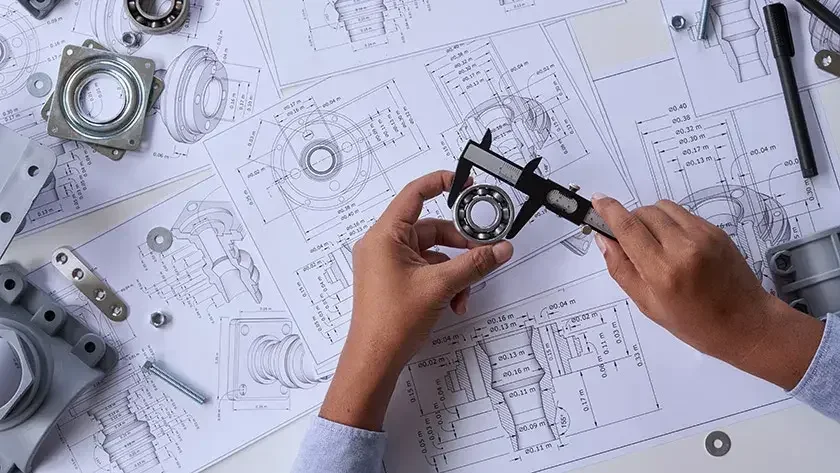All things considered, a patent can cost anywhere from a few thousand to $20,000, or more, if you have a complex invention, need international protection, or deal with multiple rejections. Before you take this step, let’s review the primary costs for various patents—provisional, utility, design, and international—and what the patent application process involves.

What makes patents so expensive?
The actual cost to file a patent is a small part of the total cost of getting a patent, as the process involves:
- Extensive research on existing patents and similar inventions
- Detailed documentation and drawings of your invention
- Developing specific claims to define the invention’s scope
- Collaboration with various specialists, such as technicians, illustrators, patent attorneys, or agents
- Ongoing communication with the United States Patent and Trademark Office (USPTO) during examination
The utility patent cost doesn’t primarily come from the patent office but from paying patent attorneys to prepare the application and handle these tasks. Although not required, a patent search can help an inventor identify similar patents and publications to their invention. A patent search can potentially save an inventor thousands of dollars if the search reveals identical or nearly identical documents to their invention. The patent search can also help an inventor modify an invention to differentiate it from other inventions in the same field.
In addition to the cost of preparing and filing your application for a patent, you may need to pay a lawyer to continue patent prosecution with the patent office on your behalf. Each response your attorney sends to the patent office can cost over a thousand dollars, and the patent office can make several rejections.
For more information, you can refer to the USPTO patent fee schedule or review the costs for your patent type below.
Understanding provisional patents
A provisional patent application secures an early filing date for your eventual nonprovisional utility application.
You can file without a formal patent claim, oath, declaration, or information disclosure (but you’ll still need to submit them with the full application). You can also apply the “patent pending” status to your invention for up to 12 months, potentially giving you a head start over later-filed competing applications.
If you’re not ready to invest in a patent but want to protect your rights, filing a provisional patent application could be a strategic move. Here are a few reasons why:
- Extra time. You have another year to further develop your invention, test its viability, and find investors.
- Cost-effective. Provisional patent applications have fewer formalities and paperwork requirements, so they are less expensive to draft.
- Legal protection. Inventors can submit a provisional patent application and, within a year of filing, convert it to a full nonprovisional application. This means if someone infringes on your patent, you may be able to take legal action after your nonprovisional patent is granted. A nonprovisional utility application typically publishes 18 months from the earliest priority date, such as the provisional filing date. No patent infringement action may be started until the patent is granted. However, pre-grant protection is available under 35 U.S.C. § 154(d), which allows a patent owner to obtain royalty damages if the invention as claimed in the patent is substantially identical to the invention as claimed in the published patent application.
A provisional patent still has to have enough information and be described in sufficient detail so that a person skilled in the invention field can understand how to make and use the invention without undue experimentation. It also doesn’t guarantee that no one will steal your idea, although you’ll at least have more protection if this happens (provided you establish the full patent).
Provisional patent application cost
The primary costs of filing a provisional patent application include the USPTO filing fee and attorney fees if you choose to hire one. Here’s a breakdown of these costs.
USPTO provisional patent application minimum filing fees:
- Standard entity, $325
- Small entity, $130
- Micro entity, $65
If your application has more than 100 sheets, the USPTO charges an extra $90 to $450 for each additional 50 sheets, depending on the entity size.
Provisional patent application attorney fees: $2,000 to $6,000 or more
Attorney rates can vary significantly based on their experience, the location, and the complexity of your invention. While not required for the provisional application, you should also start budgeting for professional drawings or illustrations, not to mention art and patent searches, as previously discussed.
Alternatively, you can complete your provisional patent application through LegalZoom for as low as $199 + federal filing fees. We also offer attorney review and preparation, illustrations, and patent searches.
Understanding utility patents
Utility patents protect the functionality of specific kinds of things: machines, methods, or systems. This includes new and useful processes, manufactures, compositions of matter, and improvements to existing inventions. When granted, a utility patent gives you the right to prevent others from making, selling, using, or importing your invention for up to 20 years from the filing date.
You might consider a utility patent if:
- Your invention serves a practical purpose or solves a problem.
- You’ve developed a new process or method.
- You’ve made significant improvements to existing technology.
However, obtaining a utility patent is highly complex, and your application must include detailed specifications, illustrations, and claims that define the scope of your invention. Due to this complexity, it’s particularly advisable to work with an attorney or a reputable patent service like ours.
There are other kinds of patents that exist which do not require such complex applications or drawn-out prosecution. A design patent, for example, protects the way an invention looks, so there’s typically less technical expertise and claims required for the application.
Utility patent application cost
Utility patent applications cost considerably more than provisional patent applications, and the exact amount depends on your invention (e.g., a complex medical device versus a garden hose), entity size, and patent complexity. Here are some rough initial filing fee estimates for various scenarios, followed by potential attorney fee ranges.
Minimal complexity: $400 to $730
- This cost range covers the basic filing fee for a micro or small entity with minimal patent claims, utility search, and utility examination fees.
Moderate complexity: $800 to $1,200 or more
- This would involve a small entity filing with additional independent claims (more than three), total claims over 20, or a larger application that exceeds 100 pages.
High complexity: $1,200 to $1,500 or more
- In this scenario, a standard entity would file a lengthy application with numerous claims and several hundred pages, resulting in more add-on fees.
Utility patent attorney fees: $3,000 to $15,000, depending on the patent’s complexity, your location, and the attorney’s experience.
What potential additional costs might arise after filing a utility patent?
Be sure to check the USPTO fee schedule if you have a large or complex application, as the USPTO charges additional fees if you have more than 100 pages or 20 claims (including up to three independent claims).
After filing your utility patent, you should prepare for the possibility that it gets rejected. In fact, only about 11% of applications are accepted on the first try. In these cases, you’ll need to pay additional costs to respond to office actions (official letters from the USPTO explaining why your application was rejected). As a general ballpark range, you might pay a few hundred dollars to $5,000 or more for each response (provided you work with an attorney).
Still, there’s no guarantee the USPTO will issue the patent, and they don’t offer refunds for rejected applications.
If your patent is approved, you’ll pay the issue fee ($258 to $1,290, depending on entity size). You’ll also pay maintenance fees to keep your patent active during its 20-year lifespan, which are due at 3.5, 7.5, and 11.5 years after it’s granted. Fees range between $430 and $8,280 per payment, depending on entity size.
Understanding design patents
A design patent protects the visual appearance of an invention, including its shape, configuration, and surface ornamentation. For instance, design patents protect fashion items, the design of manufactured goods, the shape of medical devices, and the layout of user interfaces.
You might consider pursuing a design patent if:
- Your invention’s unique appearance is a selling point.
- You want to prevent others from copying the visual aspects of your product.
- You’re in an industry where aesthetics are crucial to your success (e.g., fashion or consumer goods).
Keep in mind that design patents can only protect aesthetic design choices. For example, if you invent an improvement for a tool with a handle bent to a particular angle that improves ergonomics, then your invention may be eligible for two different patents. This includes a utility patent that describes useful handle angles for ergonomics, as well as a design patent that describes the way a particular angle looks.
The patent office’s review is usually much shorter as well, meaning fewer expenses to get the patent issued. The downside is that your scope of coverage will be limited to tools that look just like your design or appear substantially similar. Your utility patent may be broader, covering multiple angles and products.
Design patent application cost
Generally, a design patent costs less than a utility patent, as the application itself is only a few pages and requires only a few drawings. Still, the exact costs depend on your entity size and the complexity of your design. Here’s a general overview of what to expect.
Design patent filing fees
A small entity might pay about $520 in total fees, including the basic filing fee, search fee, and examination fee. Micro entities pay half of this amount, while larger entities could pay about twice as much. However, these fees can increase if your application includes multiple designs or requires additional pages.
Design patent attorney fees
An attorney might charge anywhere from $1,200 to $5,000 or more to handle your design patent application. For a straightforward design with minimal complications, you might pay closer to the lower end of this range. More complex designs or those requiring extensive research might push costs toward the top end.
For reference, we offer design patent packages starting at $999 + federal filing fees.
What potential additional costs might arise after filing a design patent?
After filing a design patent, you might pay additional fees to revise drawings or respond to office actions. If you transfer ownership of the design patent, you’ll need to record the change with the USPTO, which typically costs around $50 if submitted by paper (or $0 if done electronically).
Most of these related costs depend on specific circumstances after filing, but they can add up depending on how the process goes. Once your design patent is approved, you’ll pay the issue fee of $260 to $1,300 (depending on your entity size) but aren’t responsible for paying any maintenance fees for the 15 years while it’s active.
What is the cost of an international patent application?
The cost of an international patent ultimately depends on the countries where you seek protection, the government filing fees, and the complexity of the invention. For many inventors, it makes sense to file through the Patent Cooperation Treaty (PCT), as it allows you to apply to multiple countries simultaneously. Regardless, it’s almost a given that you’ll pay substantially more for an international patent application, starting with these expenses.
- International filing fees: $1,237 to $1,456
- Search fee: $480 to $2,400, depending on the search authority (varies by country)
- Transmittal fee: $57 to $400
- Attorney fees: $100 to $500 or more per hour
Additionally, you might pay translation, examination, or annual maintenance fees to register and uphold your patent in your desired countries. Given all the potential, it’s best to look into each country where you plan on applying for the patent and work with an attorney familiar with international patent law.
Can I file a patent myself?
You can file patent applications for your own inventions. It costs a lot less but is a huge amount of work and will lack the benefit of a trained professional. That last point is crucial because there are a large number of seemingly minor mistakes that will compromise your ability to get a good patent for your invention.
The patent process is complex, time-consuming, and requires precise language and detailed drawings. Even small errors can result in a rejected application or inadequate protection for your invention. There is a reason that patent lawyers pay more for malpractice insurance than almost any other kind of lawyer.
For those seeking a middle ground between DIY and hiring a patent attorney, we can help with provisional, utility, and design patents—all for an upfront and predictable fee.
Is getting a patent worth it?
Protecting your intellectual property is the primary purpose of a patent, but several more reasons can also make the investment worthwhile, such as:
- Investor appeal. Patents demonstrate innovation and market potential, which can make it easier to convince investors of your invention’s value.
- Business valuation boost. As valuable assets, patents can increase your company’s overall worth during acquisition or valuation discussions.
- Tax advantages. Some jurisdictions offer tax incentives or credits for patent-related financial activities and income.
- Royalty generation. Licensing your patented invention to other companies can create a steady stream of passive income.
- Industry recognition. A patent enhances your reputation as an innovator, which may lead to new partnerships or opportunities in your industry.
While getting a patent requires significant time and financial investment, the benefits of having one often outweigh the initial costs for many inventors and businesses. As you consider all the points we’ve discussed, remember that we’re here to help you work through the process of filing a patent when you’re ready to move forward.
FAQs
What is the cheapest way to get a patent?
The most cost-effective approach is to file a patent yourself. However, be sure to do your research and learn about intellectual property law, as errors can jeopardize your protection and rights. You might consider using our DIY provisional patent service if you're not ready to hire an attorney.
Can I get a patent for a simple idea?
An idea alone can’t be patented. To be eligible for a patent, your invention must be novel and non-obvious. In other words, it needs to be more than a concept—you must be able to describe how it works in sufficient detail, among other requirements.
Is there a free patent?
While the USPTO offers fee reductions for small and micro entities and pro bono programs, there are always costs associated with filing and maintaining a patent. Even if you prepare the application yourself, you’ll still need to pay a filing fee and potential maintenance fees, depending on the patent.
Joe Runge, Esq., contributed to this article.


